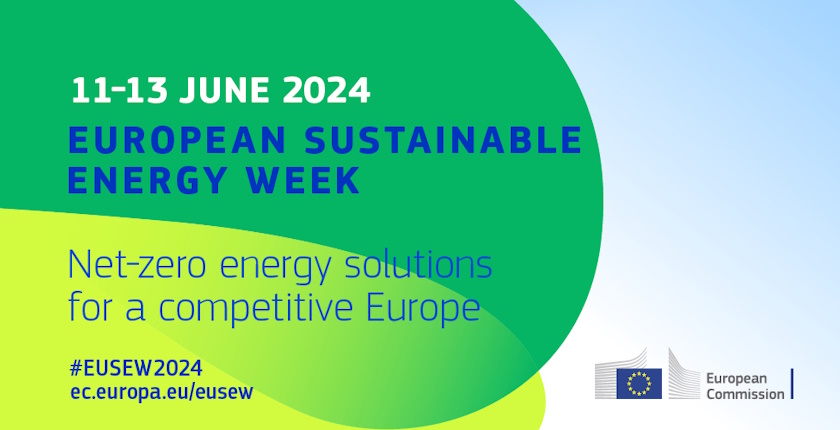
European Sustainable Energy Week 2024: Addressing Energy Poverty and Critical Raw Materials in the Energy Transition Era
From June 11th to 13th, the European Sustainable Energy Week (EUSEW) provided a dynamic platform to explore and discuss critical topics shaping the future of energy efficiency. This year’s event was particularly notable for its session on “Multilevel Governance: Addressing Energy Poverty in the Energy Transition Era,” which inspired participants with its focus on effective strategies to combat energy poverty through collaborative governance.
Multilevel Governance: A Pathway to Address Energy Poverty
The session on multilevel governance explored and promoted strategies that integrate local insights and initiatives into broader national and EU climate goals. Participants highlighted the importance of collaboration between local, regional, national, and EU institutions to tackle energy poverty effectively. The discussions emphasized the significance of the new Energy Performance of Buildings Directive and the Social Climate Fund in empowering local actors in their fight against energy poverty.
Key points of the discussion included:
- The necessity of having a national definition of energy poverty to streamline efforts and strategies.
- Challenges faced by local and regional entities, such as funding, capacity building, institutional barriers, and community engagement.
- The importance of sharing experiences and best practices among local actors.
Overcoming Challenges and Scaling Up Local Efforts
Participants delved into the obstacles that local and regional bodies encounter when scaling up their initiatives, including bureaucratic burdens, human resource constraints, and contextual differences. The session underscored the need for developing robust partnerships and ecosystems to sustain efforts post-project completion. Additionally, it examined how new EU legislation can enhance efforts against energy poverty and suggested measures for securing sufficient funding through national building renovation plans and the Social Climate Fund.
Critical Minerals: The Backbone of the Clean Energy Transition
Another session that garnered significant attention was “The Importance of Critical Minerals for the Clean Energy Transition.” The transition to clean energy is heavily reliant on critical raw materials, such as those used in wind turbines and batteries. The demand for these materials has surged, posing challenges due to their concentration in a few countries.
Key issues addressed included:
- The need for diversification of raw material imports to avoid dependence on single suppliers.
- The Critical Raw Material Act, which aims to ensure sustainable mining processes and diversification.
- Capacity building and training to ensure the supply of raw materials benefits local populations and is conducted sustainably.
- Strengthening industrial policy to align the goals of securing raw material supply with the clean energy transition.
The session also discussed the implications of geopolitical events, like the war in Ukraine, which has accelerated the deployment of renewable energy and emphasized the need for energy independence.
A Collaborative Approach to a Sustainable Future
EUSEW 2024 underscored the interconnectedness of clean energy technologies and critical raw materials, advocating for a cooperative approach among countries, industries, and civil society. Ensuring the sustainable and inclusive supply of these materials was highlighted as paramount to achieving a clean energy future. Participants explored strategies for recycling raw materials and building capacity in supplying countries, aiming to balance industrial needs with environmental and social sustainability
As the world continues to move towards decarbonization, the European Sustainable Energy Week served as a crucial forum for sharing knowledge, forging partnerships, and driving forward the policies and practices necessary for a sustainable energy future.